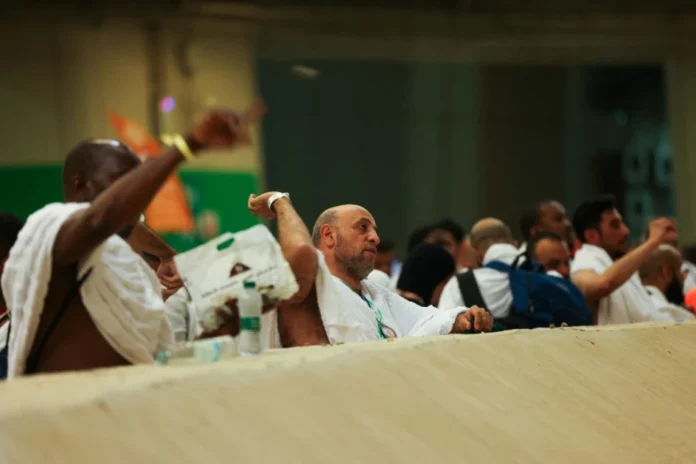
More than 1.6 million Muslim pilgrims marked the final stages of the annual Hajj pilgrimage on Friday with the symbolic “stoning of the devil” ritual in Mina, near the holy city of Mecca, as Muslims around the world celebrated the beginning of Eid al-Adha.
From the pre-dawn hours, droves of pilgrims streamed out of the sprawling tent city in Mina to throw pebbles at three stone structures known as the Jamarat. The ritual commemorates the Prophet Abraham’s defiance of Satan, who is believed to have tried to dissuade him from obeying God’s command to sacrifice his son.
“Our experience in Mina was easy and simple. We entered and within five minutes we had completed the stoning,” said Wael Ahmed Abdel Kader, a 34-year-old pilgrim from Egypt.
Howakita, a pilgrim from Guinea, described the moment as emotionally powerful: “When I threw the stones I felt at ease. I was truly proud.”
A day earlier, pilgrims gathered at Mount Arafat, the most spiritually significant stop of the pilgrimage, reciting prayers and Quranic verses at the site of the Prophet Mohammed’s final sermon. Despite intense heat, many ascended the 70-meter mount, though authorities warned people to stay indoors during peak temperatures.
This year’s Hajj season has seen enhanced safety measures following the deadly 2023 pilgrimage, where 1,301 lives were lost due to extreme heat, particularly among unregistered pilgrims without access to official accommodations. Saudi authorities implemented crowd control measures and heat mitigation strategies, resulting in reduced numbers and a visible security presence.
The 2025 Hajj recorded the lowest attendance in over three decades, excluding the COVID-19 years, amid a crackdown on unauthorized pilgrims and rising costs that discourage some from participating through official channels.
The pilgrimage coincides with Eid al-Adha, Islam’s second-most sacred festival, during which Muslims worldwide perform animal sacrifices to honor Abraham’s devotion and share the meat with family, friends, and the less fortunate.
Hajj remains a vital spiritual and economic event for Saudi Arabia, generating billions of dollars annually and reinforcing the religious role of the Saudi monarchy as the Custodian of the Two Holy Mosques.
Written By Rodney Mbua


















